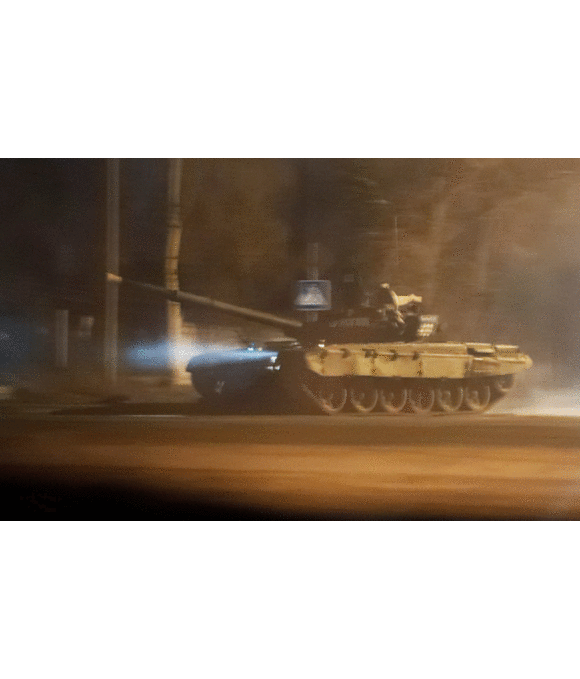EU to impose sanctions on Putin regime as Russian troops push into Ukraine

The Irish foreign minister said this morning the time has come for the EU to impose sanctions on Russia.
It comes after Russian President Vladimir Putin ordered forces into separatist regions of eastern Ukraine.
A vaguely worded decree signed by Mr Putin did not say if troops were on the move, and it cast the order as an effort to “maintain peace”.
Simon Coveney, who said there were around 60-70 Irish citizens in Ukraine, on Tuesday condemned the move as a “blatant” breach of international law and promised “targeted” sanctions by the EU against Russia.
“The question is how far do we go in relation to that sanctions package,” he said.
“There’s no way that the EU can ignore what is a blatant breach of international law.”
Mr Coveney said it was “nonsense” to suggest that Russian troops were involved in peacekeeping functions.
He said the actions of Russia and the recent comments by Mr Putin on Ukrainian sovereignty were a “signal of intent”.
Mr Coveney said: “And unless Europe and the US and the UK and others respond, I think, clearly and firmly and in a united way, then I don’t think there will be a deterrent for Russia to stop there.”
He said discussions were ongoing in the EU over what form sanctions would take.
Mr Coveney said: “As we speak, there’s a meeting taking place in Brussels now with senior officials to discuss and debate these things.
“I expect that what you’ll see from the EU today is targeted sanctions, not a decision to move ahead with the full package of sanctions that is certainly justified in the case of a full invasion of Ukraine, but certainly I think the EU will want to respond in a co-ordinated way with a very firm message today.”
On Tuesday, UK Health Secretary Sajid Javid said the Russian invasion of Ukraine has begun.
Asked whether he agreed that a full invasion had begun, Mr Coveney said: “Certainly what’s happening is that a significant number of Russian troops are now moving into part of Ukraine, a part of Ukraine that President Putin last night effectively declared independent states but nobody else recognises that.
“And certainly international law doesn’t allow for that kind of unilateral decision by one country over another. So we are seeing in many ways Russia now moving its troops into another state.
“People can describe that in any way they want. I think what you’ll hear from the EU is a very firm message to criticise Russia for that decision.”
He also said there were between 60-70 Irish people currently in Ukraine and urged anyone who could to leave the country.
Mr Coveney warned it may be increasingly difficult to leave Ukraine and said people should not travel to the country.
He added: “But don’t forget, there are Irish citizens who are married to Ukrainian citizens who have families in cities like Kyiv and others across Ukraine. And some of those people at least will decide to stay. Ukraine is their home.”